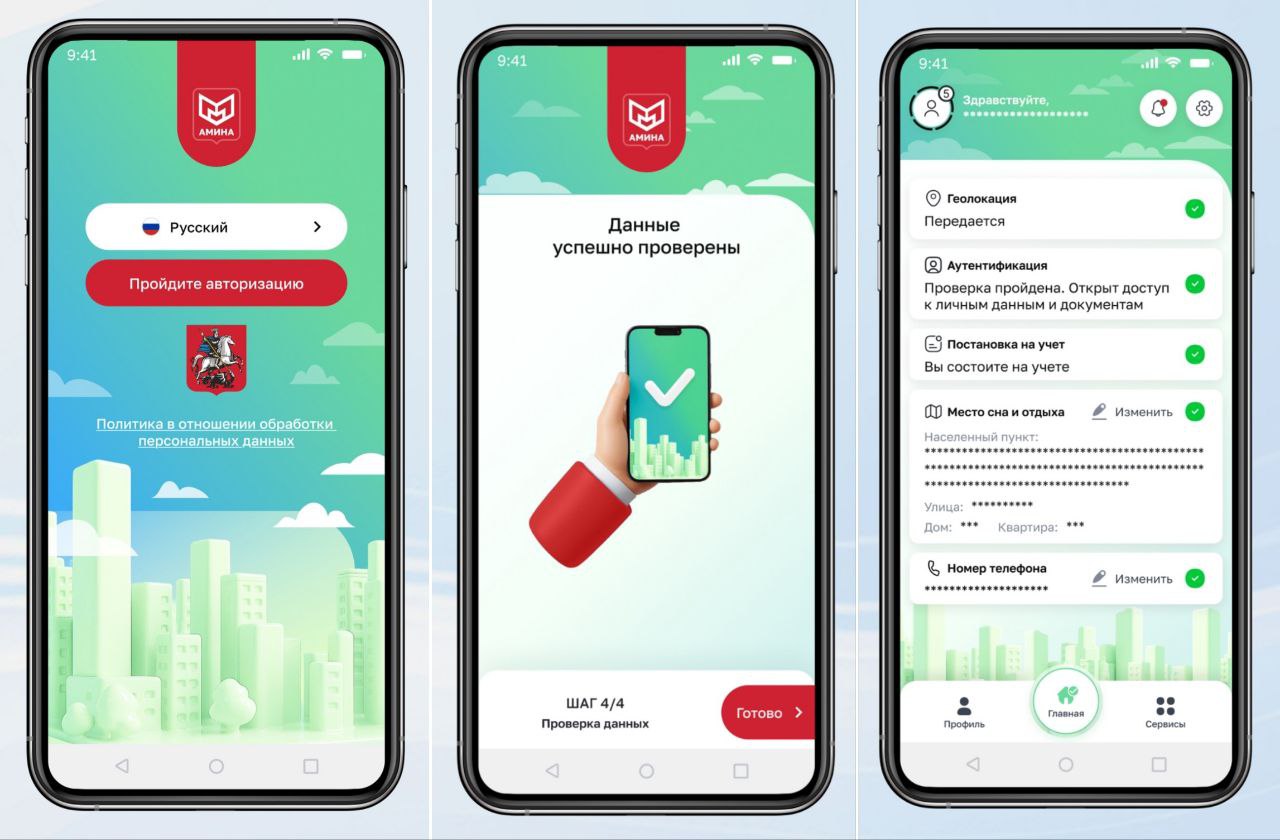Features of Migration Legislation in Moscow and the Moscow Region
The Moscow region is the largest and most complex in terms of migration in Russia. Federal laws apply here, but there are also specific regulations that help manage the large influx of foreign citizens. These features are important for those coming to work, study, or live in Moscow and its surrounding areas.
What distinguishes migration rules in Moscow and the Moscow Region?
Moscow and the Moscow Region have additional migration control measures aimed at simplifying registration and improving safety for law-abiding migrants while creating effective barriers for those who violate the law. For example, digital technologies have been introduced to monitor and track migrants’ presence, which helps process data faster and reduce the number of violations.

Starting September 1, 2025, Moscow and the Moscow Region will launch an experimental program introducing new mechanisms for recording foreign citizens and stateless persons. This experiment will run until September 1, 2029, and includes digital registration through a specialized mobile app called “Amina”, which uses geolocation to track users’ movements and locations.
Foreign citizens entering Russia without a visa to work in Moscow or the Moscow Region must register in the app and consent to the processing of personal data, including biometrics and geolocation. This information is transmitted to the Ministry of Internal Affairs (MVD) and coordinated with the Moscow and regional authorities. The rule applies to citizens of Uzbekistan, Tajikistan, Kyrgyzstan, Armenia, Kazakhstan, Georgia, Azerbaijan, Moldova, and Ukraine.
Exceptions:
- citizens of Belarus;
- minors;
- diplomats and international organization employees;
- foreigners with residence or temporary residence permits;
- persons staying in hotels, hospitals, or other organizations that maintain their own registration.

When changing address, a person must notify the MVD within three business days. However, this requirement does not apply if the foreign citizen is staying in:
- a hotel;
- a sanatorium, resort, or guesthouse;
- a tourist base or campground;
- a medical institution;
- a social service organization (including shelters);
- a correctional or administrative institution.
If geolocation data is not updated for more than three consecutive days, the individual is automatically removed from the migration register and added to a monitoring list, which may lead to deportation. Deregistration also occurs upon leaving Russia, death, or re-registration in another region.
Working with the Amina App
To use the Amina app, a foreign citizen must download it from RuStore and complete registration. A foreign citizen ID card is required — if one is not available, it can be issued at the Sakharovo Migration Center.
After registering, the user must give consent to process personal data, including geolocation tracking. The user must also enter their actual place of residence and regularly confirm it via geolocation.
There are transitional deadlines for meeting the new requirements:
- for foreigners already living and working in Moscow or the Moscow Region — until November 29, 2025;
- for new migrants arriving for employment — within 30 days after entry;
- for those already registered — within 30 days after their current registration expires.
Employer Responsibilities
Starting September 1, 2025, employers in Moscow and the Moscow Region are no longer required to notify the MVD about the arrival of visa-free foreign workers or pay a state fee for registration.
However, employers must:
- verify the migrant’s registration in the Amina app before hiring;
- monitor the validity of the employee’s registration and remind them to renew it;
- notify the MVD within 3 business days in case of dismissal or transfer to another region;
- require a certificate of registration or confirmation in the app (QR code or screenshot) when hiring.
It’s important to note that labor migrants may work in two neighboring regions under one patent. For example, a single patent may allow work in both Moscow and the Moscow Region or St. Petersburg and the Leningrad Region.
However, new restrictions apply — since January 1, 2025, the Moscow Region has prohibited the use of foreign labor under patents in certain sectors, such as food service, social work, and healthcare. Exceptions apply to EAEU citizens (Armenia, Belarus, Kazakhstan, Kyrgyzstan) and those with residence or temporary residence permits.
Foreign citizens should register in the Amina app in time and keep their data up to date. Employers are advised to brief staff on app usage and monitor compliance.

Violation of Registration Status
Failure to comply with Amina app requirements may result in serious consequences for both foreign citizens and employers.
Not installing the app or refusing to share required data is an administrative offense. Under Articles 18.8 and 18.9 of the Russian Administrative Code, a foreign citizen may be fined up to 7,000 rubles and face deportation from Russia. In addition, violating registration rules makes the migrant an illegal worker — employment is only legal with a valid registration.
Employers hiring migrants with invalid registration may also be held accountable. Under Article 18.15 of the Administrative Code, employing a foreign worker without legal grounds may result in a fine of up to 500,000 rubles for the organization. In cases of serious violations, the business may face suspension.
Conclusion
Understanding regional migration specifics helps avoid legal problems and promotes smoother adaptation. These rules are designed to maintain public order and ensure the safety of residents. Regulations continue to evolve in response to new challenges and administrative needs.
Source